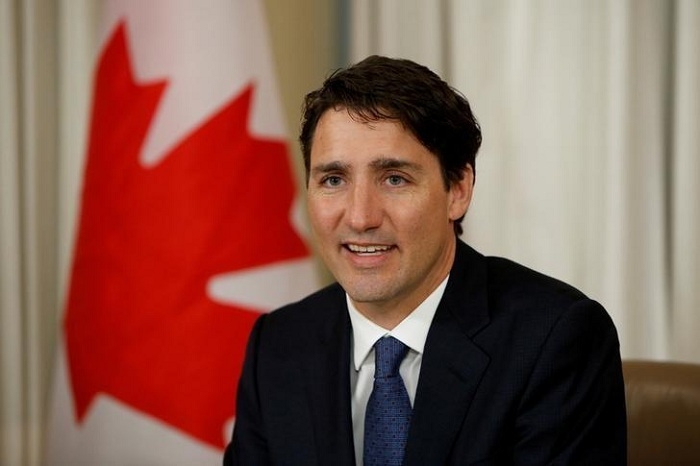“That’s going to cost a lot of money for the people of Canada. He learned,” Trump said, wagging his finger. “You can’t do that. You can’t do that.”
Trump offered no detail, but his comments marked the latest in a string of abrasive remarks from senior US officials – and appeared to dash any hopes of a swift resolution to the trade row which has helped push relations between the two countries to their lowest point in recent memory.
Analysts warned that the US president’s next target could be the country’s automotive sector, a move that would further punish Canada – but also unleash a cascade of economic consequences on both sides of the border.
“What you’re essentially talking about is dropping a nuclear bomb in middle of the North American industrial economy and waiting for the consequences to play out,” said Eric Miller, an economist and global fellow at the Canada Institute at the Woodrow Wilson Center.
Trump has previously floated the idea of implementing a 25% tariff on automobiles coming across the Canadian border. But years of trade and investment between the two nations has produced a tightly-integrated manufacturing system, blurring the lines on country of origin: on average, a vehicle passes the border seven times during the manufacturing process.
As a result, a pre-emptive attack on the Canadian automobile manufacturing network – the largest supplier to the US – would have lasting effects for Americans.
“You are looking at direct and indirect employment in the sector of hundreds of thousands of people in Canada and millions of people in the United States,” said Miller, pointing out that every job in the automotive sector creates an estimated seven peripheral jobs.
The proposed tariff would add an additional $6,250 to a $25,000 car, said Miller.
Canada would likely join other countries in retaliation, including Japan, Mexico and the European Union, causing equivalent price spikes for American consumers and ripples that could morph into waves throughout the economy.
“The United States can inflict a lot of damage on the Canadian economy. But the reality is that by doing so, it would inflict damage upon itself,” said Patrick Leblond, an international trade expert at the Centre for Internal Governance Innovation.
Trump, who was elected on a promise to restore US manufacturing jobs, has previously attacked car manufacturers based in Europe, Japan and Canada.
But a trade war is likely to most affect some of the states that handed him the presidency, which are themselves dependent on foreign commerce: 36 states count Canada as their largest trading partner.
Meanwhile, Canada depends heavily on the US economy for trade – making it particularly vulnerable to disruptions. For years, Canada has supplied its southern neighbor with raw materials: grain, lumber, oil, steel and aluminum.
“At some point, something’s got to give. And when Americans start losing their jobs, they’re going to go back to their senators and say: ‘What are you doing about this? We just lost our jobs and it’s because of Trump’s policies,’” said Leblond.
“Canada and the United States have one of the largest trading relationships in the world and amid that, one of the most balanced trading relationships,” said Michael Gregory, deputy chief economist at BMO World Markets.
Trump has also taken aim at Canada’s convoluted dairy supply management system, valued at $21bn. Initially developed as a means of protecting farmers, the system places hefty duties on imported dairy products, discouraging imports of American dairy products while favoring domestic production.
“It’s very unfair, and it’s very unfair to our workers, and I’m gonna straighten it out. And it won’t even be tough,” Trump told reporters on Tuesday while in Singapore.
While the escalating trade spat is unfolding under the auspices of a Nafta renegotiation, the American’s chief negotiator in the pact, Robert Lighthizer has remained silent amid outbursts from other top trade officials.
Canadian officials remain committed to staying in the trade pact and will continue to negotiate, said Miller, but tariffs will continue to be met with proportional countermeasures.
“If you wanted to start a global trade war, targeting the auto sector would be the way to do it,” he said.
















































